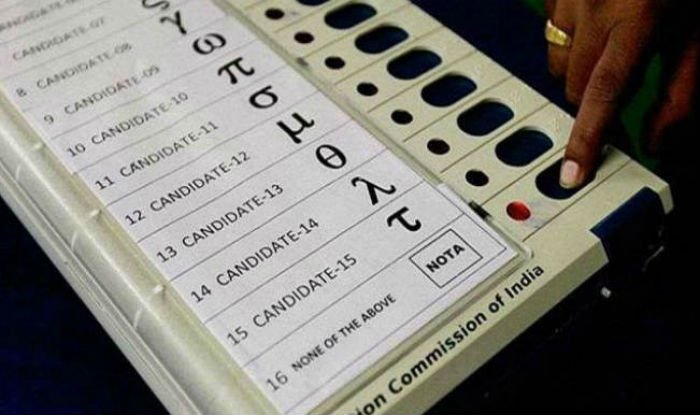The Supreme Court of India is the torchbearer of justice – Objective, impartial and incorruptible (or at least one hopes). In the last few decades, the SC hasn’t just laid down the law, they’ve almost acted as the last line of defense against apathetic lower courts, crooked cops and draconian rulings.
Here are some landmark SC judgements of the recent past.
1. Upholding the marriage of Hadiya and Shafin Jahan
In May 2017, the Kerala High Court annulled the marriage Hadiya and Shafin on the basis of a complaint by her parents that she had been brainwashed into converting to Islam. Hadiya was 25 years old at the time, an adult who had the right to choose who she wanted to marry, despite the deafening cries of ‘Love Jihad’ from the minds of the regressives and conservatives. In March 2018, the SC restored Hadiya’s marriage and annulled the Kerala HC’s draconian order.

2. Declaring the Right To Privacy as a Fundamental Right
On August 24th 2017, a nine-judge constitutional bench declared that the Right to Privacy is a fundamental right, that it is intrinsic to life and liberty and is protected under Article 21 of the Constitution. While it hasn’t as yet dissuaded the entire AADHAAR debacle from taking over our lives, it was most definitely a step in the right direction and a signal of hope.

3. Setting up the Vishakha Guidelines for dealing with sexual harassment of women at the workplace
The precursor to the Sexual Harassment of Women at Workplace (Prevention, Prohibition and Redressal) Act, 2013, the Vishakha Guidelines were introduced in 1997. It came about as a result of the atrocious treatment meted out to Bhanwari Devi, who was gangraped by 5 landlords after she tried to prevent to prevent child marriage as part of her government duties. None of the accused were ever charged.

4. Recognising transgender persons as a third gender
In April 2014, the SC created the ‘third gender’ status for hijras or transgenders, as they were earlier forced to write male or female against their gender. According to the SC, “absence of law recognizing hijras as third gender could not be continued as a ground to discriminate them in availing equal opportunities in education and employment.”

5. Disqualification of convicted representatives in India
In July 2013, the Supreme Court, in its judgement of the Lily Thomas v. Union of India case, ruled that any Member of Parliament, Member of the Legislative Assembly or Member of a Legislative Council who is convicted of a crime and given a minimum of two year imprisonment, loses membership of the House with immediate effect. Rasheed Masood was the first to go after being charged with corruption.

6. Declaring instant Triple Talaq Unconstitutional
In 2016, 35-year-old Shayara Bano challenged the practise of triple talaq after her husband of 15 years divorced her. In 2017, the SC declared the practice of Triple Talaq as unconstitutional by a 3:2 majority. Justices Nariman and Lalit held that instant Triple Talaq is unconstitutional, while Justice Joseph struck down the practice on the ground that it goes against Shariat and the basic tenets of the Quran.

7. Introduction of ‘None of the Above’ option on EVMs
While the government was opposed to this, in September 2013, the SC ruled that the right to register a ‘none of the above’ vote in elections should apply, and ordered the Election Commission to provide such a button in the EVMs. In 2015, the specific symbol for NOTA was introduced.

8. Revision of Section 66A which allowed arrests based on online content
We’ve all been witness to some of the most bizarre arrests in recent times, based on issues like people posting memes about Modi and Hindutva in general. In 2015 however, the SC struck down the controversial section 66A as unconstitutional. Section 66A of the Information Technology Act allowed arrests for objectionable content posted on the internet.

9. Declaring that passive euthanasia is permissible
In March 2018, a five-judge Constitution Bench, headed by Chief Justice Dipak Misra gave legal sanction to passive euthanasia, permitting ‘living will’ by patients on withdrawing medical support if they slip into irreversible coma. The SC held that the right to die with dignity is a fundamental right.

10. Deeming sexual relations with minor wife as rape.
In October 2017, the apex court ruled that having intercourse with the minor wife will be considered as rape. Highlighting the injustice meted out to scores of minor girls who are married off before they turn 18, Justice Madan Lokur said:
“A child remains a child whether she is a married child or an unmarried child or a divorced child or a separated or widowed child.”

11. Decriminalizing gay sex and repealing Section 377
A five-judge bench at the country’s highest court decriminalized homosexuality, striking down the 160-year-old law which deemed gay sex “against the law of nature”. In a historic judgement, which drew cheers from across the nation, the judges scrapped Section 377 and proclaimed that each individual has an equal right to love whoever they want to.

Yato Dharmastato Jayaḥ.

















